Iverjohn 3mg Ivermectin Tablets
$70.00 – $180.00Price range: $70.00 through $180.00
| Pack Size | Price | Price / Unit | Quantity | |
|---|---|---|---|---|
| 100 Tablets | $70.00 | $0.70/ unit | ||
| 200 Tablets | $130.00 | $0.65/ unit | ||
| 300 Tablets | $180.00 | $0.60/ unit |
Looking for bulk / B2B pricing? | Send Inquiry |

| SKU | 11550 |
| Manufacturer | Johnlee Pharmaceuticals Pvt. Ltd. |
| Categories | Antiparasitic |
| Delivery Time | 10 - 14 Working Days |
| Strength | 3mg |
Introduction to Iverjohn 3mg Ivermectin Tablets
Iverjohn 3mg is a brand of Ivermectin tablets, a medication primarily used to treat parasitic infections. Ivermectin is an anthelmintic agent, which means it is effective against a wide range of parasites, including roundworms, threadworms, and other intestinal parasites. Iverjohn 3mg Tablet is manufactured by Johnlee Pharmaceuticals, Which is based in Mumbai (Maharashtra), India. The Company has been accredited with ISO-9001-2015 and manufactures pharmaceutical formulations as per the guidelines of WHO.
Iverjohn 3mg Ivermectin tablets contain the active ingredient Ivermectin, which is primarily used to treat parasitic infections. Ivermectin belongs to a class of medications known as antihelmintics and antiparasitics. It works by paralyzing and killing parasites such as roundworms, threadworms, and other intestinal parasites, thereby helping to eliminate the infection from the body. While Ivermectin is widely used in veterinary medicine to control parasites, it is also used in humans for specific infections like onchocerciasis (river blindness) and strongyloidiasis.
Uses of Iverjohn 3mg
Iverjohn 3mg, containing the active ingredient Ivermectin, has several uses, including:
- Parasitic Infections
- Scabies
- Head Lice
- Rosacea
- Off-label use
How Does Iverjohn 3 mg Tablets Works?
Iverjohn 3 mg tablets contain the active ingredient Ivermectin, which is primarily used to treat parasitic infections. It works by binding to specific proteins in the parasites, which leads to the paralysis and death of the parasites. This helps in eliminating the infection from the body. Ivermectin is particularly effective against various types of parasites, including worms, lice, and certain skin conditions like scabies.
Ivermectin works by disrupting the nervous system of the parasites, preventing them from moving, feeding, or reproducing. It does this by binding to the glutamate-gated chloride channels found in the parasite’s nerve and muscle cells. This action increases the permeability of the cells, causing the parasites to become paralyzed and unable to survive in the host.
Side Effects of Iverjohn 3mg
Common Side Effects
- Nausea
- Vomiting
- Diarrhea
- Abdominal Pain
- Dizziness
- Fatigue
- Muscle Pain
- Itching
- Rash
Serious Side Effects
- Hypersensitivity
- Liver Enzymes
- Psychiatric Symptoms
- Hypotension
- Gastrointestinal Disorders
Dosage of Iverjohn 3mg
The dosage of Iverjohn 3mg (Ivermectin) tablets can vary depending on the condition being treated, the patient’s age, weight, and medical history. It’s crucial to follow the dosage instructions provided by your healthcare provider or as indicated on the medication label.
Other Dosage of Iverjohn
How To Manage Side Effects?
- Stay Hydrated
- Take with Food
- Rest and Relaxation
- Cool Compresses
- Topical Treatments
- Medication Adjustment
- Seek Medical Attention
- Follow-up with Healthcare Provider
Warning & Precautions
1. Allergic Reactions:
- Some individuals may be allergic to Ivermectin or its inactive ingredients. Allergic reactions can manifest as swelling of the face, lips, tongue, or throat, difficulty breathing, or severe itching or hives. If you experience any signs of an allergic reaction, seek immediate medical attention.
2. Neurological Effects:
- Ivermectin can cause neurological side effects such as dizziness, drowsiness, confusion, hallucinations, seizures, or loss of coordination. Use caution when performing tasks that require alertness, such as driving or operating machinery. If you experience severe or persistent neurological symptoms, consult your healthcare provider.
3. Liver Dysfunction:
- There have been rare reports of liver injury associated with the use of Ivermectin. Symptoms of liver dysfunction may include jaundice (yellowing of the skin or eyes), dark urine, abdominal pain, or unusual fatigue. If you experience any signs of liver problems, seek medical attention promptly.
4. Eye Problems:
- Ivermectin can rarely cause eye problems such as vision changes, eye pain, redness, or swelling. If you experience any visual disturbances while taking Iverjohn 3mg Ivermectin tablets, consult your healthcare provider.
5. Pregnancy and Breastfeeding:
- The safety of Ivermectin use during pregnancy or breastfeeding has not been established. It should be used during pregnancy or breastfeeding only if the potential benefits outweigh the potential risks to the fetus or infant. Consult your healthcare provider before using Ivermectin if you are pregnant or breastfeeding.
6. Drug Interactions:
- Ivermectin may interact with other medications, including certain antibiotics, antifungal drugs, and antiretroviral medications. Inform your healthcare provider about all medications you are taking, including prescription, over-the-counter, and herbal supplements, to avoid potential interactions.
7. Pediatric Use:
- The safety and efficacy of Ivermectin in children weighing less than 15 kilograms (about 33 pounds) have not been established. Use caution when administering Ivermectin to pediatric patients, and follow the dosage instructions provided by your healthcare provider.
8. Off-Label Use:
- Ivermectin should only be used for approved indications and under the supervision of a healthcare professional. Off-label use of Ivermectin for conditions not approved by regulatory authorities may be associated with increased risks and should be avoided.
Safety Advice
- Always take Iverjohn 3 mg tablets exactly as prescribed by your doctor. Do not adjust the dosage or frequency without professional advice.
- Limit alcohol consumption while taking Iverjohn, as it may increase the risk of side effects like dizziness or drowsiness.
- Follow up with your doctor regularly to ensure the treatment is working properly and to monitor for any adverse effects.
- If you’re being treated for eye-related parasitic infections (like river blindness), inform your doctor if you experience swelling or other vision problems.
- Do not take more than the prescribed amount. An overdose can lead to serious side effects like dizziness, confusion, or seizures.
- Inform your doctor if you have a known allergy to Ivermectin or any other ingredients in the tablet.
Frequently Asked Questions
1. Can Iverjohn 3mg Ivermectin tablets be used to treat COVID-19?
There is insufficient evidence to support the use of Ivermectin for the prevention or treatment of COVID-19. It should only be used for approved indications and under the guidance of a healthcare professional.
2. How long does it take for Iverjohn 3mg to work?
The onset of action and effectiveness of Ivermectin can vary depending on the type of infection being treated. It’s important to complete the full course of treatment as prescribed by your healthcare provider.
3. Is Iverjohn 3mg Ivermectin tablets safe for use during pregnancy and breastfeeding?
The safety of Ivermectin during pregnancy and breastfeeding has not been established. Consult your healthcare provider before using this medication if you are pregnant or breastfeeding.
4. How should I store Iverjohn 3mg Ivermectin tablets?
Store Iverjohn 3mg Ivermectin tablets at room temperature away from moisture, heat, and light. Keep the medication out of reach of children and pets.
| Pack Size | 100 Tablets, 200 Tablets, 300 Tablets |
|---|---|
| Price/Unit | $0.60/unit, $0.65/unit, $0.70/unit |
2 reviews for Iverjohn 3mg Ivermectin Tablets
Add a review Cancel reply
Related Products
Antiparasitic

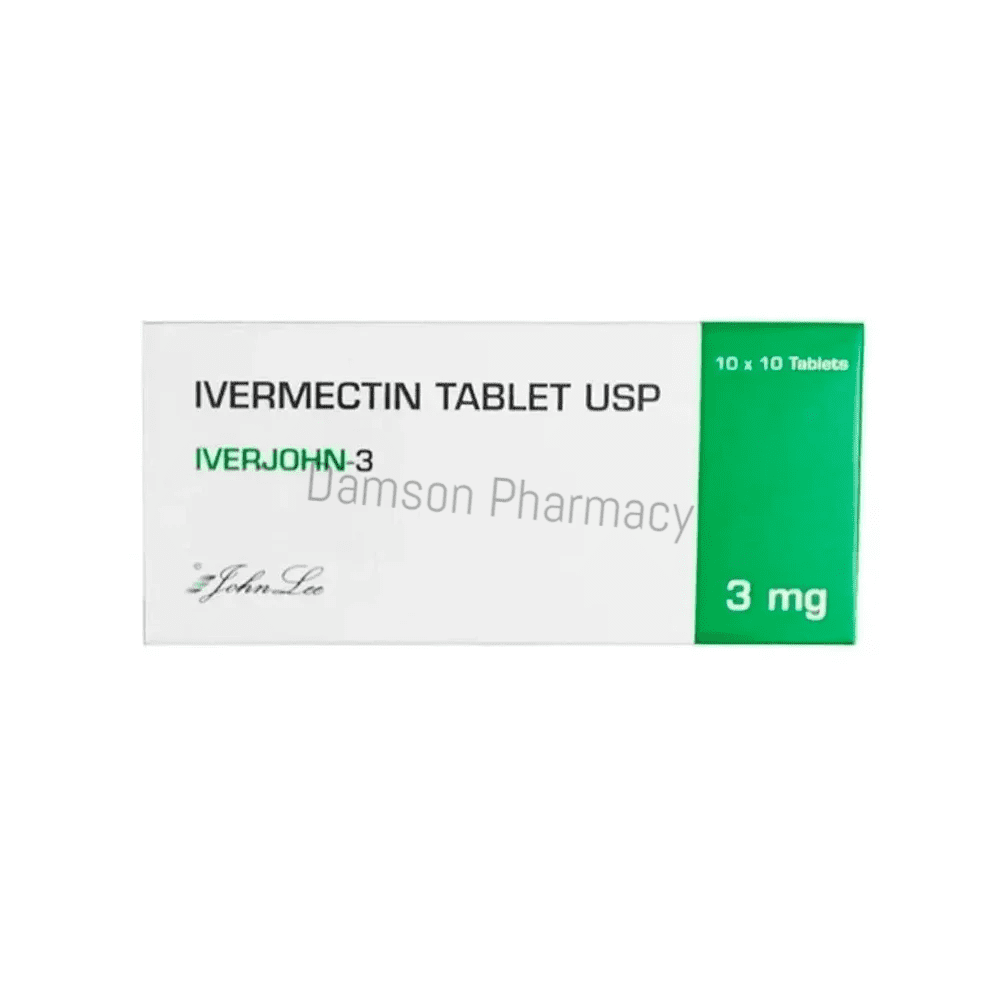
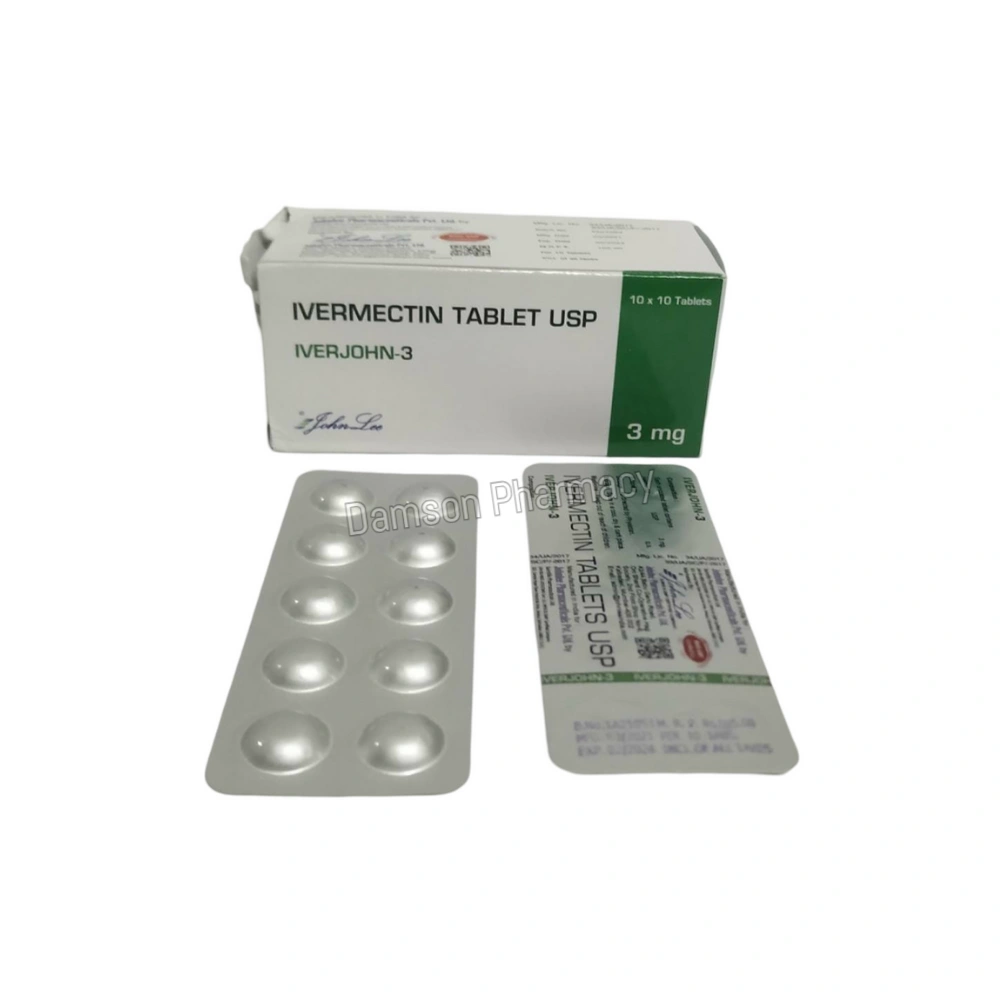
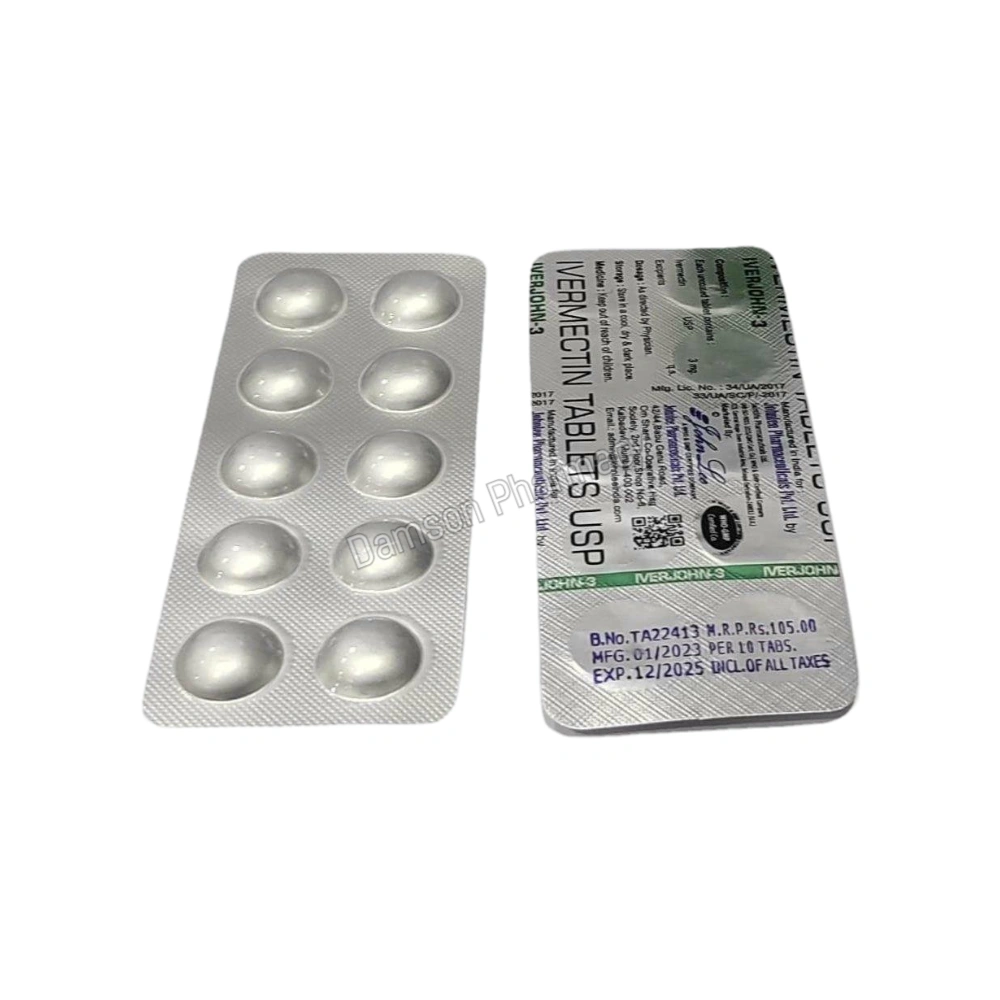
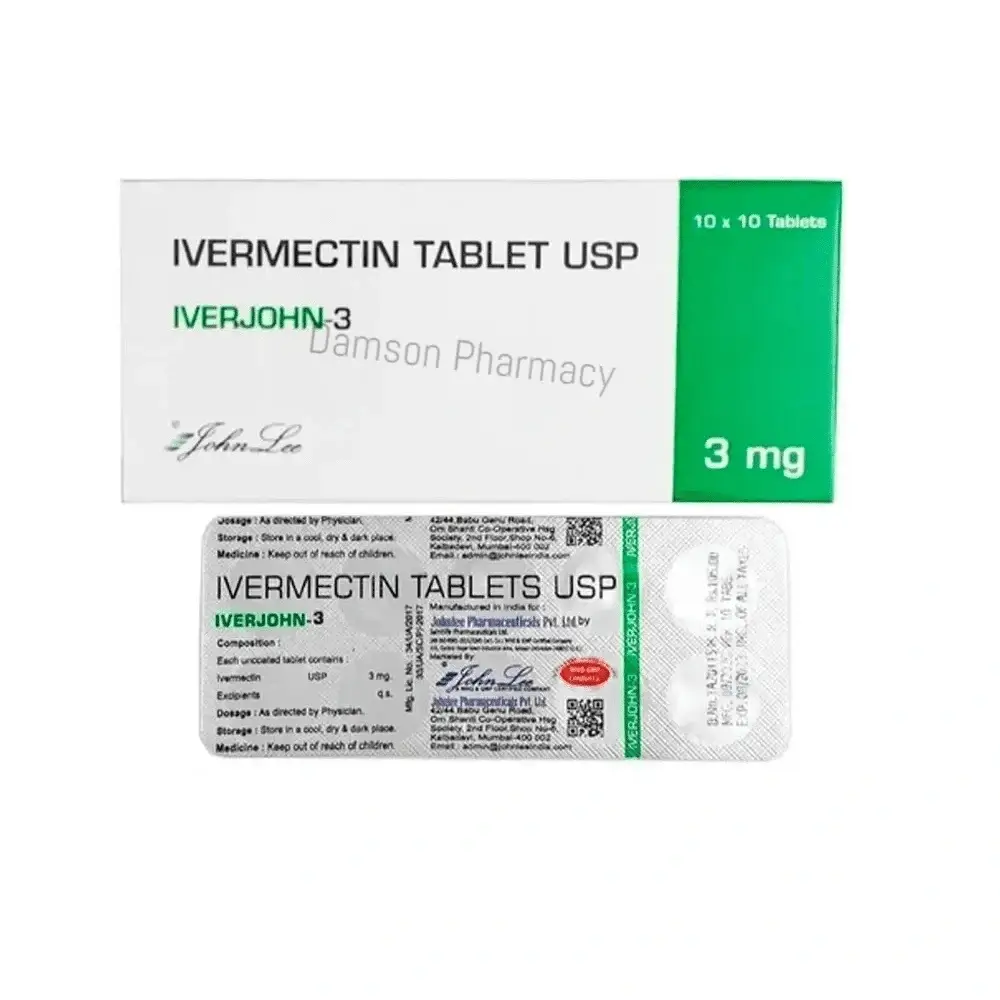
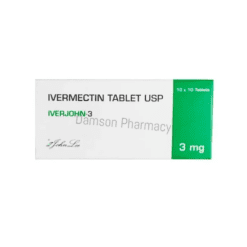
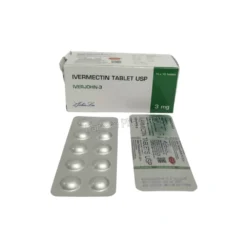
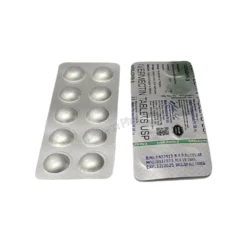
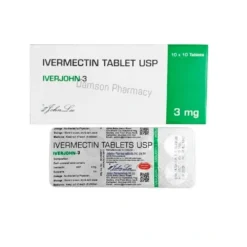
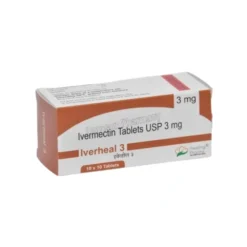
Miles –
Always very helpful filling or refilling my prescriptions. Very friendly phone staff. Never a problem.
Joel –
Product as described & delivery punctual & prompt. Very pleased with this service.